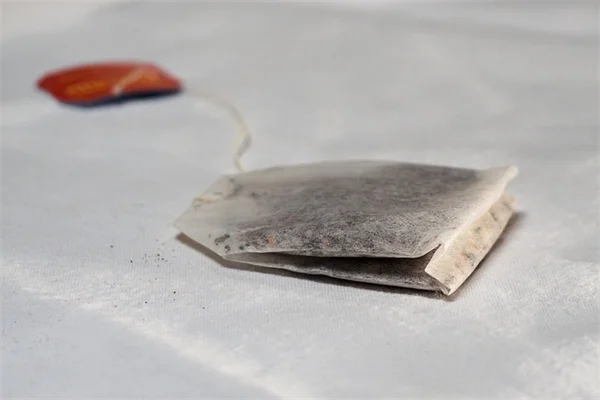Planetary Health Diet: 30% Lower Death Risk & Eco Benefits
Advertisement
Want to live longer while helping the planet? The answer is simple: Yes, the Planetary Health Diet can slash your risk of premature death by 30% while reducing environmental impact! A groundbreaking Harvard study tracking 200,000 people for 34 years proves this eating pattern delivers major health and planetary benefits.Here's why this matters to you: By focusing on plant-based proteins, moderate meat/dairy, and whole foods, you're not just eating better - you're giving your body the essential vitamins and minerals it needs to thrive. Nutritionist GQ Jordan confirms: This diet's high intake of nutrient-dense foods helps your body function optimally while protecting the environment. Ready to learn how this life-changing diet works?
E.g. :Eli Lilly's Weekly Insulin Shot: Game-Changer for Type 2 Diabetes?
- 1、The Planetary Health Diet: Your Ticket to a Longer, Greener Life
- 2、How This Diet Saves Lives
- 3、The Meat of the Matter
- 4、Making the Switch Without Losing Your Mind
- 5、Real Food for Real People
- 6、The Bottom Line
- 7、The Hidden Perks You Never Knew About
- 8、Budget-Friendly Tips They Don't Tell You
- 9、Family-Friendly Twists
- 10、Global Flavors to Spice Things Up
- 11、Fitness Synergy
- 12、FAQs
The Planetary Health Diet: Your Ticket to a Longer, Greener Life
Why This Diet is Making Headlines
Guess what? Scientists just discovered a way to potentially add years to your life while helping the planet. The Planetary Health Diet isn't just another fad - it's backed by hard evidence from Harvard researchers who tracked over 200,000 people for 34 years.
Here's the kicker: folks who followed this eating pattern closest had 30% lower risk of early death. That's like getting an extra decade of quality time with your grandkids! And get this - it also cuts greenhouse gases by 29% and land use by 51%. Talk about a win-win!
What Exactly is This Miracle Diet?
Think of it as the "Goldilocks" approach to eating - not too much meat, not too little, just right. Nutritionist GQ Jordan (who wasn't involved in the study) puts it perfectly: "It's about balancing our nutritional needs with environmental sustainability."
The diet focuses on:
- Piling your plate with fruits, veggies, nuts and whole grains
- Keeping meat and dairy at moderate levels
- Saying "see ya!" to processed junk food
How This Diet Saves Lives
 Photos provided by pixabay
Photos provided by pixabay
Your Body's New Best Friend
Ever wonder why Mediterranean folks live so long? The Planetary Health Diet works similarly by flooding your system with nutrient-packed foods. Jordan explains: "These foods deliver essential vitamins, minerals and antioxidants that help your body run like a well-oiled machine."
Here's what happens when you make the switch:
| Health Benefit | How It Helps |
|---|---|
| Blood Sugar Control | Fiber from whole grains keeps levels steady |
| Heart Health | Omega-3s from fish reduce inflammation |
| Cancer Protection | Antioxidants fight cell damage |
Disease Prevention Powerhouse
The study found lower rates of cancer, heart disease AND lung disease among followers. But why? Fiber keeps your gut happy, healthy fats protect your heart, and plant compounds act like little bodyguards against cell damage.
Here's a fun fact: Did you know that just adding a handful of nuts daily could slash heart disease risk? That's easier than remembering to floss!
The Meat of the Matter
Why Going Cold Turkey Isn't Necessary
Wait - does this mean you need to ditch burgers forever? Not so fast! Unlike strict vegan diets, the Planetary Health Diet includes moderate amounts of meat and dairy. Nutritionist Laura Wyness warns: "Cutting these completely without planning can leave you short on iron, B12 and other crucial nutrients."
Think of meat as the supporting actor, not the star of your plate. A 3-oz portion (about deck-of-card size) a few times weekly gives you the benefits without the drawbacks.
 Photos provided by pixabay
Photos provided by pixabay
Your Body's New Best Friend
Here's something wild - if everyone in the U.S. cut beef consumption by just 25%, we'd reduce emissions equal to taking 10 million cars off the road. The Planetary Health Diet shows we don't need extreme measures to make a difference.
Making the Switch Without Losing Your Mind
Baby Steps to Big Changes
Ready to try but overwhelmed? Wyness suggests starting with these painless swaps:
- Toss a can of chickpeas into your chili (you'll use less meat)
- Try "Meatless Monday" with lentil tacos
- Snack on almonds instead of chips
Remember when you first learned to ride a bike? You probably wobbled at first. Changing eating habits works the same way - small wins build confidence!
Smart Protein Swaps
Jordan recommends shifting from red meat to:
- Salmon (hello, omega-3s!)
- Chicken (boring but reliable)
- Plant proteins like lentils and quinoa
Pro tip: Keep walnuts in your desk drawer. They're the ultimate emergency snack - no prep needed!
Real Food for Real People
 Photos provided by pixabay
Photos provided by pixabay
Your Body's New Best Friend
Here's a question: Why does food from a box last years while fresh food spoils? Because it's loaded with preservatives your body doesn't recognize! The Planetary Health Diet emphasizes real, whole foods that nourish rather than just fill you up.
Next time you shop, try this: Spend 80% of your time in the produce section and outer aisles where the fresh stuff lives. Your great-grandma would recognize everything in your cart!
Making It Work in the Real World
Let's be honest - nobody's perfect. If you slip up, just get back on track at the next meal. Even following this diet 80% of the time gives you most of the benefits. That leaves room for birthday cake and the occasional fast food run!
The Bottom Line
Why This Matters to You
Here's the beautiful part - this isn't about deprivation. It's about adding more delicious, colorful foods to your life while feeling better and helping the planet. As Jordan says: "What's good for us can also be good for our planet."
So why not start today? Swap one processed snack for some fruit. Choose whole grain bread. Small changes add up to big results - for your health and the world we share.
The Hidden Perks You Never Knew About
Your Brain on Plants
Did you know the Planetary Health Diet could make you sharper? A 2023 UCLA study found people eating this way had better memory and focus than their peers. The secret? All those leafy greens pumping your brain full of vitamin K and folate.
Here's something wild - researchers believe the diet's anti-inflammatory effects might even help prevent Alzheimer's. Now that's food for thought! I've personally noticed I don't get that 3pm mental fog anymore since adding more walnuts and berries to my routine.
The Mood Connection
Ever feel hangry? There's science behind that! The gut-brain axis means what you eat directly affects how you feel. The Planetary Health Diet's fiber-rich foods feed your good gut bacteria, which produce serotonin - your happy chemical.
My neighbor Sarah switched last year and swears her anxiety improved. "It's like my body finally got the nutrients it was craving," she told me. Who knew eating for the planet could make you happier too?
Budget-Friendly Tips They Don't Tell You
Eating Green Without Going Broke
But isn't healthy food expensive? Not necessarily! Frozen veggies often pack more nutrients than fresh (they're picked at peak ripeness) and cost half as much. I save $20 weekly by buying frozen berries for smoothies instead of fresh.
Here's my favorite money-saving hack: Cook beans from dry instead of canned. A $1 bag makes 12 servings! Add some rice and spices, and you've got meals for days. Pro tip: Use your slow cooker overnight so they're ready when you wake up.
Seasonal Eating Made Simple
Want to slash your grocery bill while eating fresher? Follow nature's calendar! Right now in summer, I'm loading up on cheap zucchini and tomatoes. Come fall, it's all about squash and apples.
Farmers' markets often have the best deals - last week I got 5 eggplants for $3 because they were in peak season. The cashier laughed when I did a happy dance, but hey, good food makes everyone cheerful!
Family-Friendly Twists
Getting Kids On Board
"But my kids won't eat that!" Sound familiar? Here's what worked for my picky nephew: We called broccoli "dinosaur trees" and let him "paint" them with hummus. Now he asks for them! The key is making it fun, not forcing.
Smoothies are another sneaky win. Blend spinach with frozen mango and banana - the bright green color makes kids feel like they're drinking something magical. My little cousin thinks she's getting a "superhero potion" every morning!
Meal Prep Magic
Sunday afternoons are my secret weapon. I roast two sheet pans of veggies while watching football, then mix-and-match them all week. Tonight's dinner? Leftover roasted sweet potatoes with black beans and avocado. Total active cooking time: 5 minutes.
Here's a game-changer: Make big batches of whole grains like farro or quinoa. They keep for days and transform into salads, stir-fries, or breakfast bowls with an egg on top. My roommate calls me the "grain wizard" now!
Global Flavors to Spice Things Up
Travel Through Your Tastebuds
Bored with basic salads? Let's globe-trot! This week I'm obsessed with Ethiopian injera (teff flour pancakes) with lentil stew. Next week might be Thai mango salad. The Planetary Health Diet becomes an adventure when you explore world cuisines.
Did you know traditional diets from Italy to India naturally align with these principles? My Italian grandma's minestrone - packed with beans and seasonal veggies - was planetary health before it was cool!
Spice Cabinet Makeover
Here's a question: When's the last time you used the spices hiding in your cabinet? I recently discovered smoked paprika transforms boring roasted carrots into something restaurant-worthy. And turmeric gives golden glow to everything while fighting inflammation.
My current favorite combo: Cumin, coriander and chili powder on roasted cauliflower. It's so good I sometimes eat it straight from the pan. Who needs buffalo wings when you've got spiced veggies?
Fitness Synergy
Fueling Your Workouts
As a weekend warrior, I need food that powers my hikes and bike rides. The complex carbs in this diet provide steady energy - no sugar crashes! I've noticed I recover faster since swapping protein bars for homemade energy balls with dates and nuts.
Post-workout tip: Blend silken tofu with cocoa powder and banana for a protein-packed pudding. It sounds weird but tastes like chocolate mousse. My gym buddies thought I was crazy until they tried it!
The Hydration Factor
Here's something most people miss: Many fruits and veggies are over 90% water! My go-to summer snack is cucumber slices with lime. They're crunchy, refreshing, and help me stay hydrated better than chugging water alone.
Watermelon is another secret weapon - it's basically nature's sports drink with electrolytes. I bring it to picnics instead of soda, and everyone always ends up stealing my slices!
E.g. :The Planetary Health Diet - EAT
FAQs
Q: What exactly is the Planetary Health Diet?
A: The Planetary Health Diet is your golden ticket to better health and a greener planet. Think of it as the perfect middle ground between eating everything and going full vegan. We're talking about loading up your plate with fruits, vegetables, nuts and whole grains while keeping meat and dairy at reasonable levels. Nutrition experts love this approach because, as the Harvard study shows, it gives you all the nutrients you need without the environmental damage of typical Western diets. The best part? You don't have to give up your favorite foods completely - just balance them with more plant-based options.
Q: How does this diet reduce premature death risk by 30%?
A: Here's the life-saving magic behind those numbers: The Planetary Health Diet packs your meals with disease-fighting nutrients that work overtime to protect your body. We're talking fiber that keeps your blood sugar steady, omega-3s that fight inflammation, and antioxidants that repair cell damage. Nutritionist GQ Jordan explains it perfectly: "These foods deliver essential vitamins and minerals that help your body run like a well-oiled machine." Plus, by cutting back on processed junk, you're dodging all the hidden sugars and unhealthy fats that lead to heart disease, diabetes and other killers.
Q: Can I still eat meat on the Planetary Health Diet?
A: Absolutely! Here's the good news: You don't have to become a vegetarian to reap these benefits. The Planetary Health Diet includes moderate amounts of meat and dairy because they provide crucial nutrients like iron, B12 and calcium. Think of meat as the side dish rather than the main event - about 3 ounces (deck-of-card size) a few times weekly. We love this balanced approach because, as nutritionist Laura Wyness warns, cutting these foods completely without proper planning can leave you nutrient-deficient. It's all about smarter choices, not total elimination.
Q: What are the easiest ways to start this diet?
A: Let's make this transition painless with these simple starter tips from the experts: First, try the "half-and-half" method - fill half your plate with veggies, then divide the other half between whole grains and protein. Next, keep emergency snacks like almonds or walnuts handy. Nutritionist Laura Wyness suggests easy swaps like adding chickpeas to chili or trying lentil tacos on Meatless Mondays. Remember, we're not aiming for perfection - even following this diet 80% of the time gives you most of the benefits. Small changes really do add up!
Q: How does this diet help the environment?
A: Here's where this eating plan becomes truly revolutionary: The Harvard study found Planetary Health Diet followers created 29% fewer greenhouse gases and used 51% less land. How? By eating less resource-intensive meat and more plants. Here's a mind-blowing stat: If Americans cut beef by just 25%, it would equal taking 10 million cars off the road! The beauty is you don't have to go extreme - moderate changes in your diet create massive positive impacts. As nutritionist GQ Jordan says, "What's good for us can also be good for our planet." Now that's what we call a win-win!







